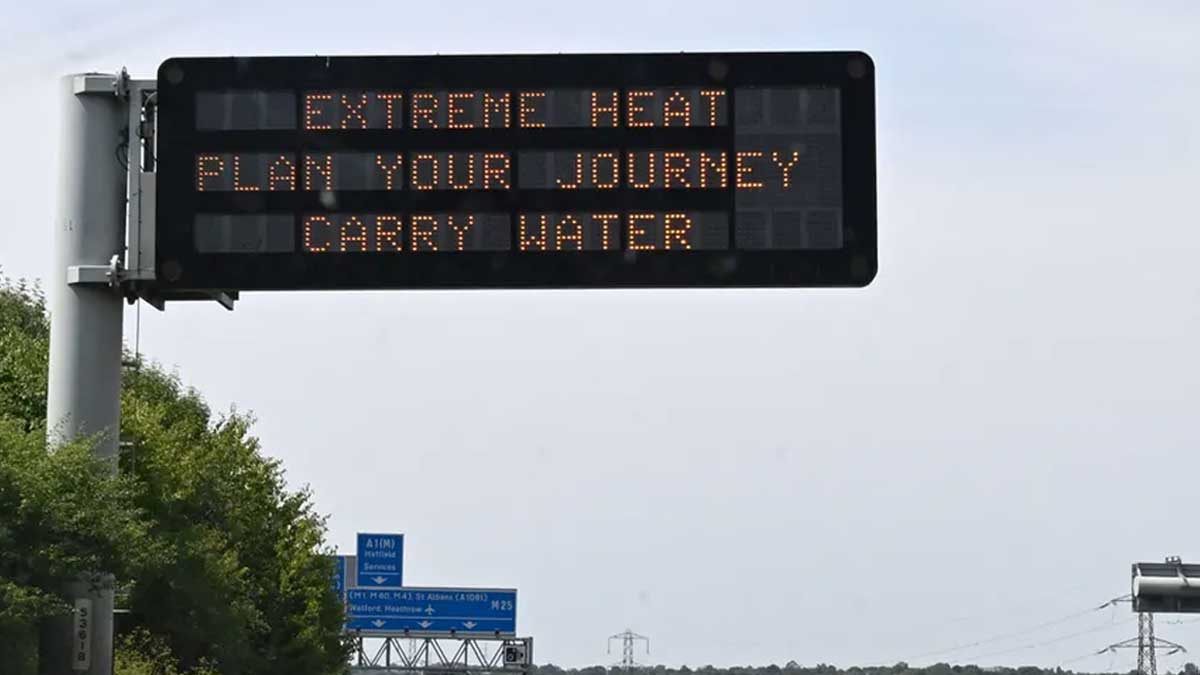- Home
- Billionaires
- Investing Newsletters
- 193CC 1000
- Article Layout 2
- Article Layout 3
- Article Layout 4
- Article Layout 5
- Article Layout 6
- Article Layout 7
- Article Layout 8
- Article Layout 9
- Article Layout 10
- Article Layout 11
- Article Layout 12
- Article Layout 13
- Article Layout 14
- Article Sidebar
- Post Format
- pages
- Archive Layouts
- Post Gallery
- Post Video Background
- Post Review
- Sponsored Post
- Leadership
- Business
- Money
- Small Business
- Innovation
- Shop
Recent Posts
Midwest, Northeast to Sizzle in First Heat Wave, Temps Near 100°F

The Midwest and Northeast are bracing for the “first significant heat wave” of the season, coinciding with the official start of summer in the U.S. According to the National Weather Service (NWS), real feel temperatures could soar near and even surpass 100 degrees, as several U.S. cities have already been breaking heat records this year.
The NWS has issued warnings for potentially record-breaking temperatures across much of the Midwest, Great Lakes, Northeast, and Mid-Atlantic regions. High temperatures are expected to persist through Saturday and possibly into early next week, potentially making this heat wave “the longest experienced in decades for some locations.”
Manchester, New Hampshire, is expected to break a daily heat record on Wednesday with a forecasted high of 102 degrees, along with Albany, New York (98), Morgantown, West Virginia (5), and Scranton, Pennsylvania (95), according to AccuWeather.
In addition to the scorching daytime temperatures, overnight lows are expected to stay in the mid-70s, providing little relief from the heat. Cities like Chicago, St. Louis, Pittsburgh, Philadelphia, New York, and Boston are all facing extreme heat risks, while Baltimore and Washington, D.C., are categorized as having major heat risks, as per the NWS Weather Prediction Center.
AccuWeather predicts that temperatures in areas experiencing extreme heat could be 10 to 15 degrees higher than historical averages for late June.
To stay safe during the heat wave, people in affected areas are advised to stay indoors with air conditioning, limit outdoor activities, wear lightweight and loose-fitting clothing, and stay hydrated, according to the Centers for Disease Control. AccuWeather’s Dan DePodwin warns that the likelihood of heat-related illnesses is highest towards the end of a heat wave, as the body accumulates stress from consecutive days of hot weather.
The NWS Weather Prediction Center emphasized the danger of this heat wave, stating that the early arrival, duration, abundant sunshine, and lack of overnight relief will increase the risk beyond what the temperature values would suggest.
On Monday, approximately 150 million Americans were expected to experience temperatures higher than 90 degrees, with around 9 million people likely to see temperatures surpassing 100 degrees, according to NBC News.
Despite this week’s anticipated heat wave, more than a dozen cities have already broken heat records this year. Last Friday, El Paso, Texas, reached 109 degrees, breaking a daily temperature record, while Colorado Springs, Colorado, set a daily record at 96 degrees. Earlier in the week, Tucson, Arizona, Provo, Utah, Fort Collins, Colorado, Brownsville, Texas, and Fort Lauderdale, Florida, also broke heat records.
Recent Posts
Categories
- 193 Countries Consortium Partner1
- 193cc Digital Assets2
- 5G1
- Aerospace & Defense48
- AI37
- Arts3
- Banking & Insurance11
- Big Data3
- Billionaires959
- Boats & Planes1
- Business332
- Careers13
- Cars & Bikes79
- CEO Network1
- CFO Network17
- CHRO Network1
- CIO Network1
- Cloud10
- CMO Network18
- Commercial Real Estate7
- Consultant1
- Consumer Tech194
- CxO1
- Cybersecurity73
- Dining1
- Diversity, Equity & Inclusion4
- Education7
- Energy8
- Enterprise Tech29
- Events11
- Fintech1
- Food & Drink2
- Franchises1
- Freelance1
- Future Of Work2
- Games149
- GIG1
- Healthcare79
- Hollywood & Entertainment203
- Houses1
- Innovation46
- Investing2
- Investing Newsletters4
- Leadership65
- Lifestyle11
- Manufacturing1
- Markets20
- Media195
- Mobile phone1
- Money13
- Personal Finance2
- Policy569
- Real Estate1
- Research6
- Retail1
- Retirement1
- Small Business1
- SportsMoney42
- Style & Beauty1
- Success Income1
- Taxes2
- Travel10
- Uncategorized12
- Vices1
- Watches & Jewelry2
- world's billionaires928
- Worlds Richest Self-Made Women10
Related Articles
Navigating Uncertainty: Preparing for a Potential TikTok Ban
As 2024 draws to a close, creators and brands are preparing for...
By 193cc Agency CouncilDecember 31, 2024Critically Acclaimed 2024 Films Struggle at the Box Office
The year 2024 proved to be a mixed bag for the film...
By 193cc Agency CouncilDecember 26, 2024Netflix Secures 2027 and 2031 Women’s World Cup Rights
Netflix has clinched an exclusive streaming deal for the next two FIFA...
By 193cc Agency CouncilDecember 20, 2024Meta Fixes Facebook, Instagram, WhatsApp Outages
Meta, the parent company of Facebook, Instagram, and WhatsApp, faced significant outages...
By 193cc Agency CouncilDecember 12, 2024








Leave a comment